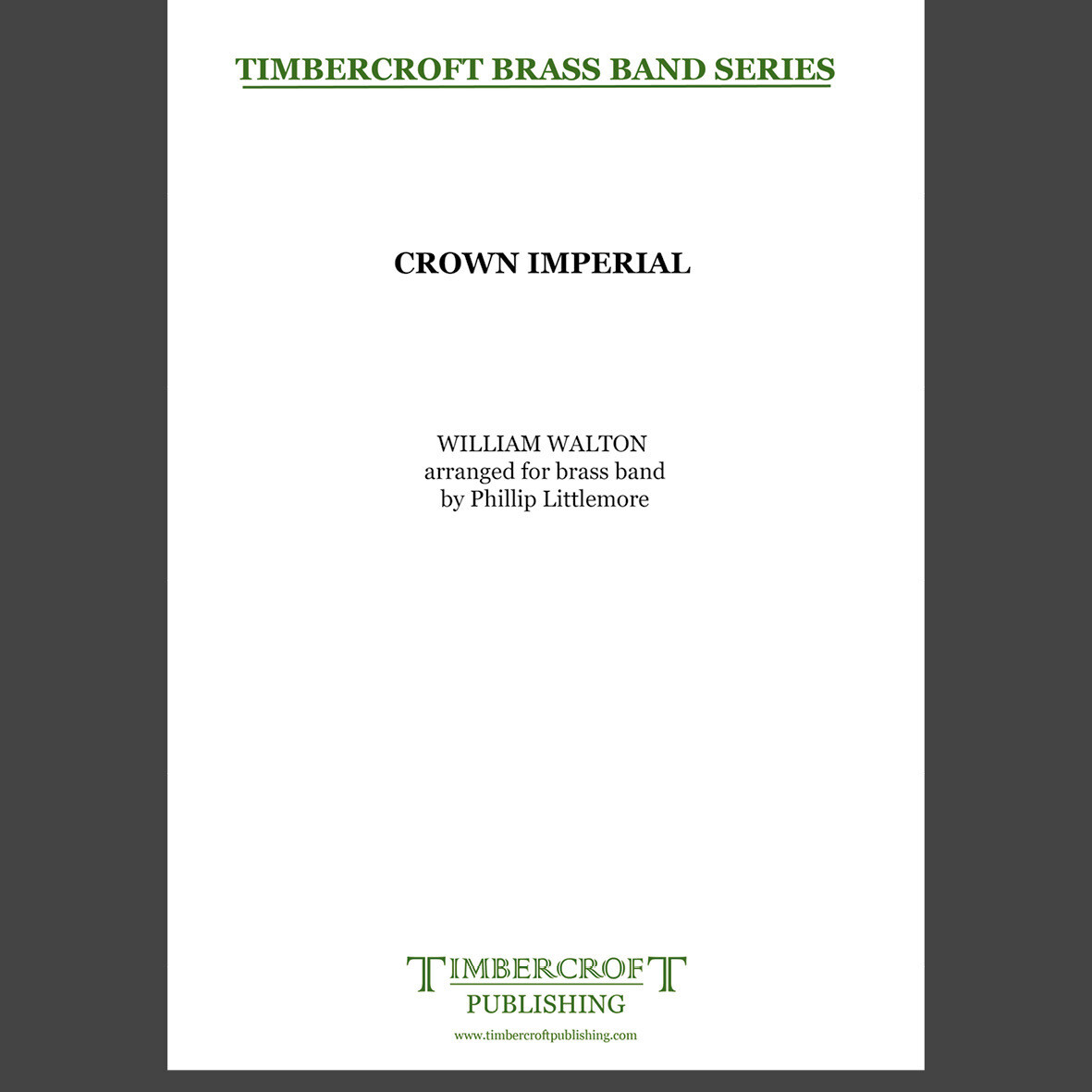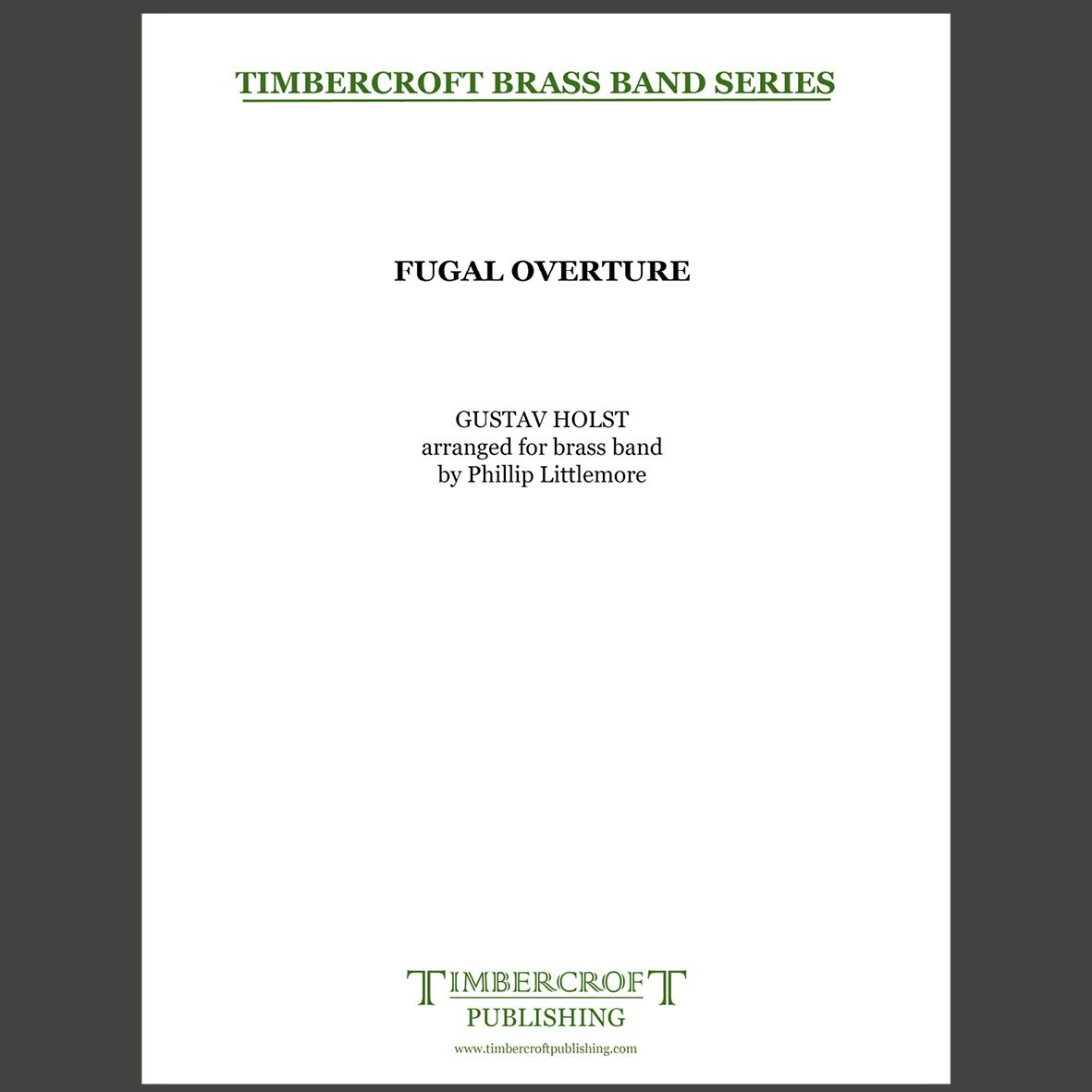Results
-
£59.99
Who Wants To Live Forever (Brass Band - Score and Parts)
Who Want to Live Forever is a rather grim title given Freddie Mercury's untimely death, but his songs, and especially his recordings with Queen will live on forever. The title refers to the immortal Connor MacLeod from the movie Highlander, and reached number 24 on the British charts. Now Thijs Oud's arrangement lets this song live on forever as part of your brass band's repertoire. 05:00
Estimated dispatch 7-14 working days
-
 £59.95
£59.95John O'Gaunt (Overture) (Brass Band - Score and Parts) - Vinter, Gilbert
Concert Overture for Brass BandIn the year 1340 in the town of Ghent, a son was born to Edward III King of England and his Queen Phillipa. The boy, afterwards known as John O'Gaunt (Ghent) grew up to be a warrior and before he was 20 he was fighting in France beside his brother, the Black Prince. For many years he was occupied with the wars in France and Spain and was seldom in England. His first two marriages brought him great riches and position, but the love of his life was Catherine Swynford, who bore him four children. Whilst he was away , his Palace of Savoy was burnt to the ground by the mob during the Peasant's Revolt. Finally in 1394 he returned home and married Catherine, for whom he felt a strong affection since her first marriage in St. Clement Danes Church in the Strand, many years before. The Beaufort children were thus legitimised and from them sprang a long line of English Kings and Queens.Duration: 9:30Recorded on Polyphonic QPRL068D Triumphant Rhapsody
Estimated dispatch 7-14 working days
-
 £29.95
£29.95John O'Gaunt (Overture) (Brass Band - Score only) - Vinter, Gilbert
Concert Overture for Brass BandIn the year 1340 in the town of Ghent, a son was born to Edward III King of England and his Queen Phillipa. The boy, afterwards known as John O'Gaunt (Ghent) grew up to be a warrior and before he was 20 he was fighting in France beside his brother, the Black Prince. For many years he was occupied with the wars in France and Spain and was seldom in England. His first two marriages brought him great riches and position, but the love of his life was Catherine Swynford, who bore him four children. Whilst he was away , his Palace of Savoy was burnt to the ground by the mob during the Peasant's Revolt. Finally in 1394 he returned home and married Catherine, for whom he felt a strong affection since her first marriage in St. Clement Danes Church in the Strand, many years before. The Beaufort children were thus legitimised and from them sprang a long line of English Kings and Queens.Duration: 9:30Recorded on Polyphonic QPRL068D Triumphant Rhapsody
Estimated dispatch 7-14 working days
-
 £30.00
£30.00Fantasia on themes by Purcell - Ian Shepherd
Fantasia consists of three distinct sections that use thematic material from three separate pieces by Henry Purcell. The first section is based on the march from Funeral Music for Queen Mary which is dramatically dark and powerful but also uplifting. The Second section uses the devastatingly beautiful aria Dido's Lament or When I am laid in earth from the opera Dido and Aeneas as its basis and builds to enormous proportions, unlike the original aria. The third section begins with a haunting reference to the Rondo from Abdelazer. Gradually, this builds towards an exciting re-statement of the theme in the first section to the finale.
-
 £30.00
£30.00Jubilee Gigue - Debbie Wiseman
This piece was commissioned to be performed on the Georgian barge as part of the Queen's Diamond Jubilee Pageant. Inspired by the "Gigue" (sometimes referred to as "Country Dance") in Handel's original Water Music, the piece has a rollicking, upbeat feel and is now newly arranged for brass band. The story that inspired the piece is of a pirate ship attacking the flotilla. The pirates are then confronted by the courageous defenders of the flotilla who are, of course triumphant in the end. The piece concludes with a final defiant statement of the heroic theme, and the pirates are gone forever.
-
 £40.00
£40.00Last Night of the Proms Medley - Traditional
The quintessential most English of English classical music concerts and the self-styled world's largest and most democratic musical festival". The "Proms", originally known as The Henry Wood Promenade Concerts are an eight-week summer season of daily orchestral classical music concerts and other events held annually, predominantly in the Royal Albert Hall in London. Founded in 1895, each season now consists of more than 70 concerts in the Albert Hall, a series of chamber concerts at Cadogan Hall, additional Proms in the Park events across the United Kingdom on the last night, and associated educational and children's events. Often held as outdoor concerts in London's pleasure gardens, where the audience was free to stroll around while the orchestra was playing, this tradition has once again been revived in parks and stately homes not only in the UK, but across the world. The first series of promenade concerts were held indoors at the Queen's Hall in Langham Place. The idea was to encourage an audience for concert hall music who, though not normally attending classical concerts, would be attracted by the low-ticket prices and more informal atmosphere. In addition to "promenading" or "promming"; eating, drinking and smoking was all allowed. Many people's perception of the "Proms" is taken from the "Last Night", although this concert is very different from the others. The concert is traditionally of a lighter vein, with popular classics being followed by a series of British patriotic pieces in the second half of the concert. This second half sequence traditionally includes most of the works included in this medley. Many in the audience use the occasion for an exuberant display of Britishness. Union Jack Flags are carried and waved by the "Prommers", especially during "Rule, Britannia!". Balloons and party poppers are also in abundance.
-
 £20.00
£20.00Xmas Ditty - Tim Paton
Seasonal 'fun' for the band, (and the audience of course).Robert Childs commented:It begins with yet another rendition of Jingle Bells, "Wait a minute though, is someone out of tune somewhere? Who is that who some of the band are shouting at? Why am I thinking of Les Dawson? ... Back to the music - it's Good King Wenceslas, how did Rule Britannia get in there? ... and I'm sure that was the end of God Save the Queen".After an unadulterated version of O Come, all ye faithful, the final section features Jingle Bells and Good King Wenceslas claiming the last spot together.The piece ends with the well known 'AMEN' cadence - but there's still a little surprise on the last chord! "..is subtitled 'seasonal fun for band and audience', and it certainly is just that!"
In Stock: Estimated dispatch 3-5 working days
-
 £40.00
£40.00Crown Imperial - William Walton arr. Phillip Littlemore
William Walton composed his Crown Imperial for performance at the coronation of King Edward VIII, which was scheduled for the 12th May 1937. However, due to the dramatic abdication of Edward, it was in fact performed at the Coronation of the new monarch, King George VI, which took place on the same scheduled date. The march became popular immediately, and arrangements for piano solo, organ, small orchestra and military band were all published within a year. It has been used at all Royal events since, most notably the Coronation of Queen Elizabeth II in 1953 and latterly King Charles III.This new brass band transcription is in keeping with the shorter, 6-minute concert version that Walton created immediately following the Coronation of George VI. However, the scoring is more in keeping with contemporary brass band voicings, corrects errors in the previous brass band transcription by Frank Wright, and provides a much more exciting version for brass band. "Phillip Littlemore's arrangement of Crown Imperial is a bit like Frank Wrght's, only Phillip's is in Technicolor!" (Gary Westwood, Leyland Band) A video of this arrangement can be found here: Crown ImperialDuration: 6'30"Difficulty: 2nd Section and above
Estimated dispatch 5-7 working days
-
 £40.00
£40.00Fugal Overture - Gustav Holst arr. Phillip Littlemore
Holst began composing his Fugal Overture in the late summer of 1922 after a holiday in Derbyshire and the full score was completed on 4th January 1923. The first performance was at the Royal Opera House the following May, where it preceded the first performance of Holst's opera, The Perfect Fool. The first concert performance on 11th October that same year at the Queen's Hall with Holst conducting.Despite its name, the overture is not strictly fugal. The fugal subject is full of spiky cross-rhythms first introduced in the basses, with the upper parts persisting with a pentatonic chord. The headlong pace slackens for a central interlude, introduced by the solo horn solo. However the festivities soon return driving headlong towards its conclusion.
Estimated dispatch 5-7 working days
-
 £30.00
£30.00Jerusalem - C. Hubert H. Parry arr. Phillip Littlemore
Sir Hubert Parry wrote the music to the hymn Jerusalem in 1916, during the gloom of World War I. It uses William Blake's poem And Did Those Feet In Ancient Times which itself was written around 1804, and first published in 1808.Parry's hymn was originally written for the 'Fight for Right' movement, formed to sustain the resolve of Britain during the Great War. The hymn received its premiere on the 28th March 1916 in the Queen's Hall, London at a 'Fight for Right' meeting. In 1917, Parry conducted it for the ladies of the Albert Hall choir as part of a call in favour of National Service for Women. This signalled a closer relationship with the women's suffrage movement which Parry and his wife, Maude, supported. A year later, Jerusalem was sung at a suffrage demonstration concert and was adopted by the Women's' Institute as their anthem in 1924.There are regular calls for the hymn to be adopted as the official National Anthem of England, but this is not new. The first such call can be traced back to the centenary of Blake's death in 1927 and the call continues undimmed to this present day. This brass band arrangement is based on Parry's original orchestration from 1916.Duration: 2'20"Difficulty: Suitable for all grades
Estimated dispatch 5-7 working days
